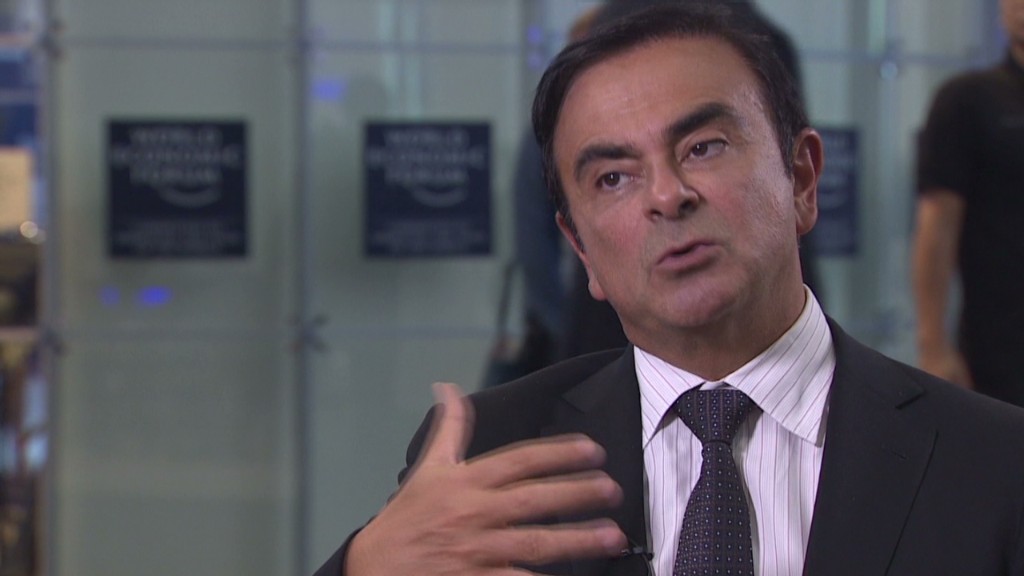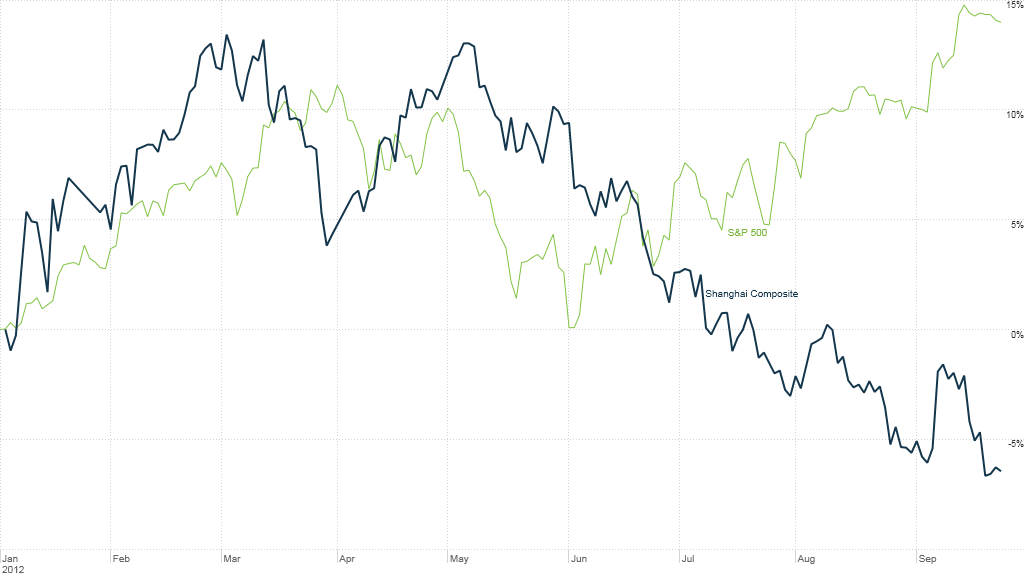Despite a rapidly growing economy, China's marquee stock index has taken an epic drubbing, falling to a three-and-a-half year low.
The Shanghai Composite Index has tumbled 66% over the past five years, 27% over the past three years, and 6% so far in 2012.
The losses are stunning, especially given that the Shanghai Composite is only one of two major indexes to show declines this year. Spain's IBEX 35 is the other (it's down about 5%). But the NIkkei is up more than 7%, the FTSE 100 is up 5%, and Germany's DAX has skyrocketed 26%. In the United States, the S&P 500 has more than doubled from its recession lows, jumping 16% since January.
China's economy is still expanding at a 7% to 8% annual clip, but it has slowed somewhat from pre-recession figures that often exceeded 10%. Even with strong growth, state officials have taken steps to further spur the economy. China's central bank has cut rates twice this year, and a load of infrastructure projects are set to break ground.
Yet the actions have failed to arrest the Shanghai Composite's decline.
Some of the index's slowdown can be attributed to the sharp decline in corporate profits.
"While the economy may be on track for a soft landing, interim results show that corporate earnings growth has already crashed," HSBC economists noted in a research note that details the "disconnect" between the performance of equities and the larger economy.

Analysts also noted that retail investors have abandoned stocks in droves and are instead seeking out higher returns in alternative investments.
"There has been a shift in demand for investors in general," said Winnie Deng, a senior associate at Z-Ben Advisors. "They are moving to short-term investments with more liquidity."
Among the top choices are physical property, wealth management and trust products that sometimes offer more lucrative returns. Equity analysts at Nomura have said that, while lacking hard data, anecdotal evidence suggests retail investors are also diverting funds to underground lending outlets and foreign real estate.
According to HSBC, millions of retail trading accounts have gone idle.
Regulators have loosened market controls in recent years, and reforms have increased the number of foreigners who are able to buy into the index, but there are still legal limits when it comes to foreign investors.
Meanwhile, dividends have been encouraged as a means toward drawing in more retail investors, who account for the majority of the index.
Related: World's largest economies
HSBC's analysts said that "listed companies have raised too much equity capital, but paid out too little in dividends," which supports public criticisms that the "market heavily favors the interests of issuers (mostly state-owned enterprises), brokerages, and the government over investors."
Most observers agree that the once-a-decade political transition scheduled for next month will precede any substantial reforms. The make-up of the new leadership team is not yet known, but there is a chance that economic concerns will rank high on their agenda.
That may offer up a sliver of hope.
HSBC's analysts said that if China's economic growth stabilizes, its new administration commits to substantial structural and regulatory reforms, and foreign investment comes back, the Shanghai Composite could be poised for growth by the second half of 2013.



